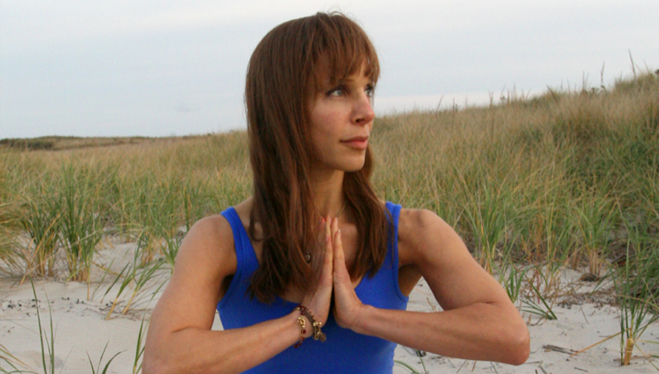In recent weeks, I’ve been struck by the number of healthy, strong yogis in our community that are in the throes of emotional crisis, experiencing panic attacks, anxiety, depression, and grief. At this time, we have more stress and emotional imbalance than ever before. Yet it wasn’t the number of yogis or the nature of their crises that affected me the most. Rather, it was something deeper and more disheartening: their responses to their own pain.
Most of my yogis in crisis shared with me some version of a story that they shouldn’t be feeling what they’re feeling. Laced with barely disguised self-contempt, I heard, “Panic attacks–seriously?” Another said, “I thought I was past that.” “Why am I going backwards emotionally?” asked another. “With all the therapy, yoga, and meditation I’ve put in, I should be well beyond this,” proclaimed a fourth. Why are we so quick to be down on ourselves at times like this, I wondered, and what can we do about it?
In a recent module of our teacher training, Coeli Marsh, a guest teacher from the Cambridge area, spoke eloquently about some of the pluses (and potential pitfalls) of the heated power yoga practice. Since our community consists of therapeutic yogis, we were all ears. One of my favorite parts of Coeli’s presentation addressed the role of physical discomfort in the power yoga practice. Often, she told us, “strong sensation is equated with change.”
Coeli’s words ignited a flash of recognition for me. “Yes!” I thought. “Of course.” Many of our power practices identify strong sensation, even pain, as a stepping stone to change. The result: when strong sensation equals change, we begin to overvalue strength and pushing through discomfort. Vulnerability and self-care, then, fade into the background.
The idea that strong sensation equals change creates a ripple effect. From “strength is good” we also create the deep visceral belief that developing physical strength is a linear process. From there, it’s not a big leap to believing that cultivating emotional strength is also linear. In this belief system, we continuously evolve emotionally from one stage to the next, and need never look back or revisit our earlier stages of development.
Because we assume that we have thoroughly “matured” or gotten emotional challenges “out of our system”, we have a way of seeing emotional pain as “going backwards,” as a sign of regression. Here’s the dilemma: emotional growth is a serpentine, circular, messy endeavor, like the Ouroboros, the mythical serpent who eats its own tail. And transformation requires that we revisit earlier stages of evolution, and the feelings they evoke, again and again.
In my teacher trainings, we have an open invitation for graduates to repeat any part of the training they’d like; this opportunity helps them integrate the subtle aspects of information and self-awareness they may have missed the first time around. The same is true of finding and maintaining emotional balance: going backwards, it turns out, is a therapeutic tool for change. In other words, we must go backward in order to move forward.
Each time a New Year approaches, we’re fed images of “moving forward,” inundated with the energy of resolutions for change. Last year, Kathy Hartsell, one of our community’s leading teachers, posted a unique resolution on Facebook: she resolved to make no concrete goals for the year. This year, let’s consider following her lead: let’s stay still and appreciate where we are, rather than obsess over where we’d like to be. Or we can get even more radical in our approach to emotional balance: we can go backwards, and be fearless about doing so.
So this holiday season, invite a little regression into your life in the service of emotional growth. Let things get a little messy. You can consider it an “emotional do-over.” And this time, you can change something by infusing that “backwards” space with compassion.

As understanding grows in you, a look back may show you something quite different than you thought you believed. At 72, I see many things in a new light. Thanks for the article.
It is actually a great and helpful piece of
information. I am satisfied that you just shared this useful
information with us. Please stay us informed like
this. Thanks for sharing.